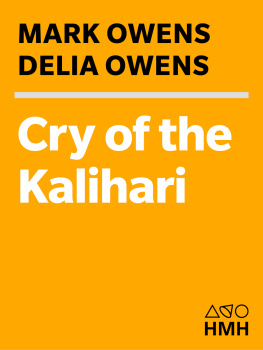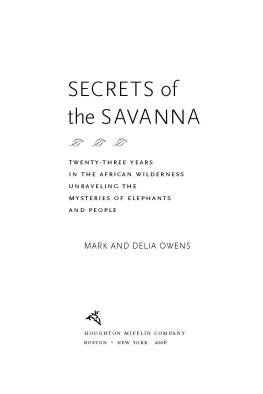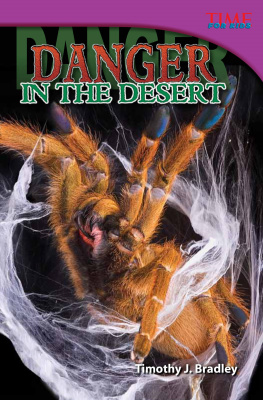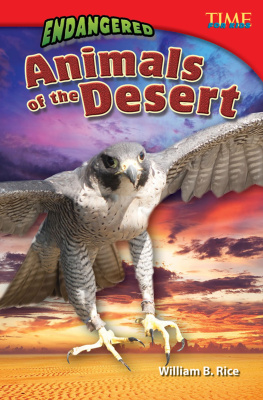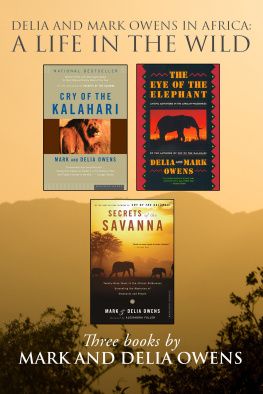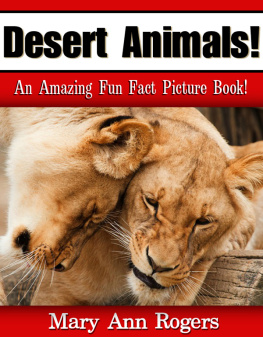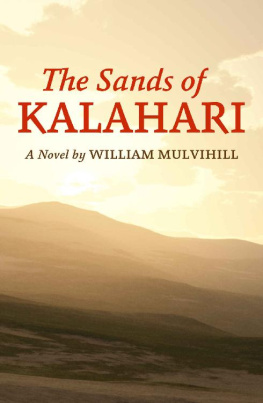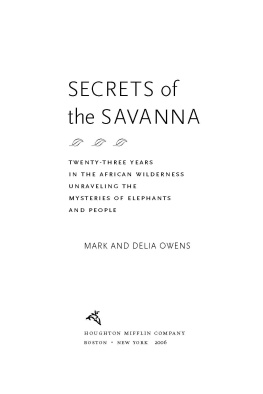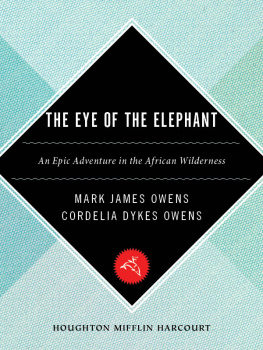Mark James Owens - Cry of the Kalahari
Here you can read online Mark James Owens - Cry of the Kalahari full text of the book (entire story) in english for free. Download pdf and epub, get meaning, cover and reviews about this ebook. year: 1992, publisher: Mariner Books, genre: Non-fiction. Description of the work, (preface) as well as reviews are available. Best literature library LitArk.com created for fans of good reading and offers a wide selection of genres:
Romance novel
Science fiction
Adventure
Detective
Science
History
Home and family
Prose
Art
Politics
Computer
Non-fiction
Religion
Business
Children
Humor
Choose a favorite category and find really read worthwhile books. Enjoy immersion in the world of imagination, feel the emotions of the characters or learn something new for yourself, make an fascinating discovery.
- Book:Cry of the Kalahari
- Author:
- Publisher:Mariner Books
- Genre:
- Year:1992
- Rating:3 / 5
- Favourites:Add to favourites
- Your mark:
- 60
- 1
- 2
- 3
- 4
- 5
Cry of the Kalahari: summary, description and annotation
We offer to read an annotation, description, summary or preface (depends on what the author of the book "Cry of the Kalahari" wrote himself). If you haven't found the necessary information about the book — write in the comments, we will try to find it.
This is the story of the Owens travel and life in the Kalahari Desert. Here they met and studied unique animals and were confronted with danger from drought, fire, storms, and the animals they loved. This best-selling book is for both travelers and animal lovers.
Cry of the Kalahari — read online for free the complete book (whole text) full work
Below is the text of the book, divided by pages. System saving the place of the last page read, allows you to conveniently read the book "Cry of the Kalahari" online for free, without having to search again every time where you left off. Put a bookmark, and you can go to the page where you finished reading at any time.
Font size:
Interval:
Bookmark:
drawn by Lorraine Sneed.
Maps on prepared by Larry A. Peters
Copyright 1984 by Mark and Delia Owens
All rights reserved
For information about permission to reproduce selections from this book, write to Permissions, Houghton Mifflin Harcourt Publishing Company, 215 Park Avenue South, New York, New York 10003.
www.hmhco.com
The Library of Congress has cataloged the print edition as follows:
Owens, Mark.
Cry of the Kalahari.
Includes bibliographical references and index.
1. ZoologyKalahari Desert. 2. ZoologyBotswana. 3. Kalahari Desert. I. Owens, Delia. II. Title.
QL337.K3095 1984 591.9681'1 84-10771
ISBN-13: 978-0-395-64780-6 (pbk.)
ISBN-10: 0-395-64780-0 (pbk.)
e ISBN 978-0-544-34164-7
v1.0414
We dedicate this book to
Dr. Richard Faust
and to
Ingrid Koberstein
of the Frankfurt Zoological Society
for all they have done for the animals
of this earth.
And to Christopher, who could not be with us.
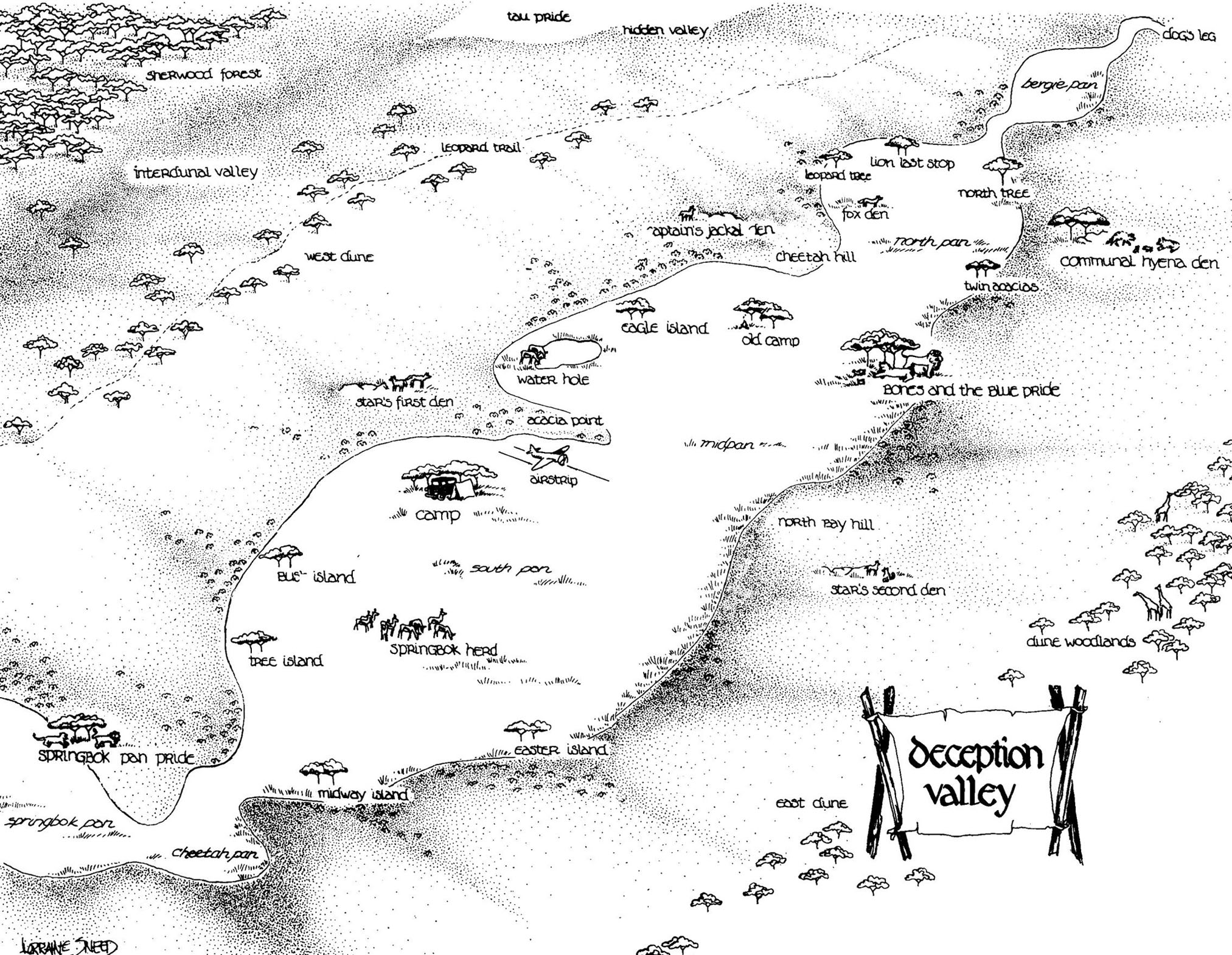
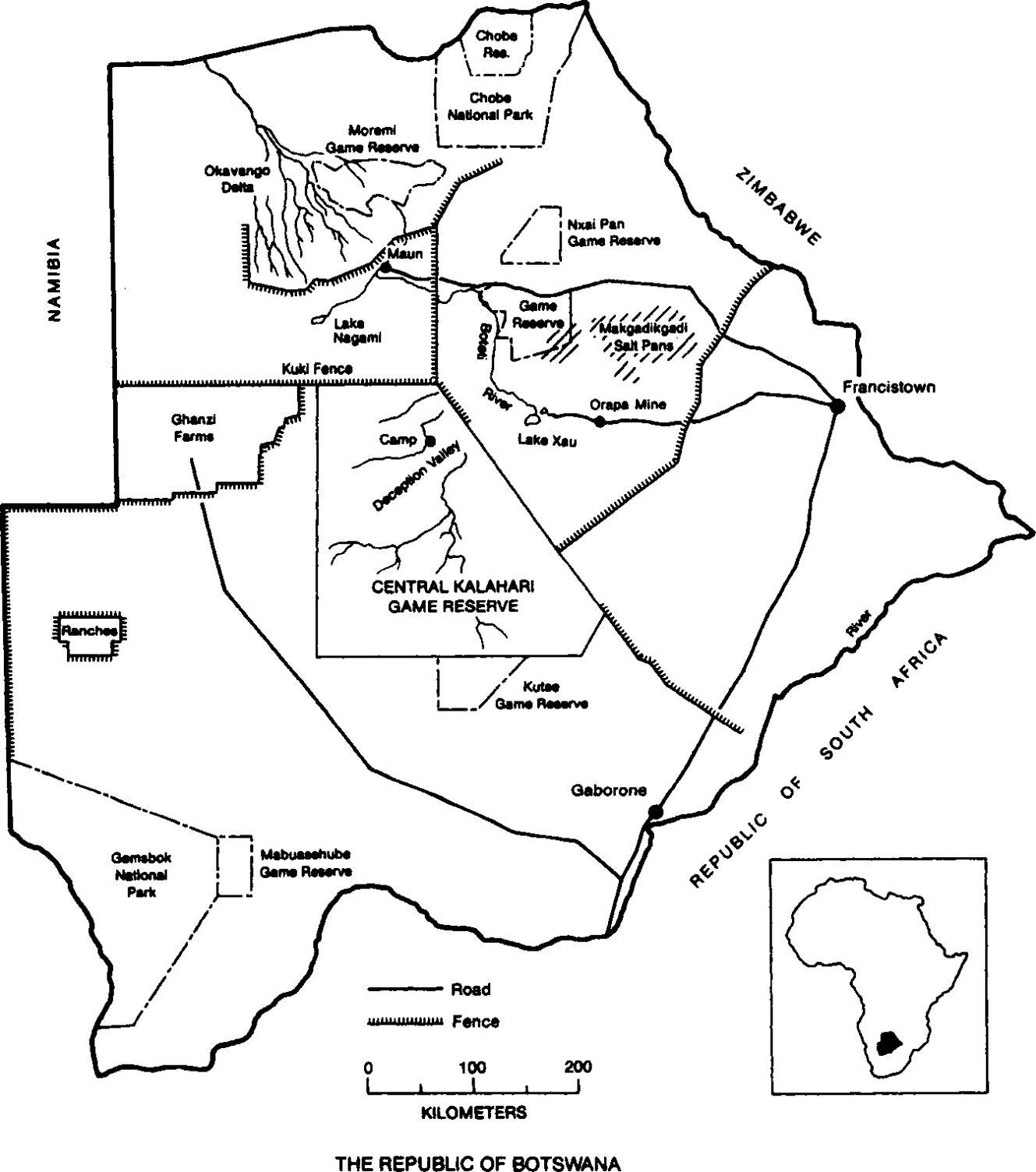
Mark
M Y LEFT SHOULDER and hip ached from the hard ground. I rolled to my right side, squirming around on grass clumps and pebbles, but could not get comfortable. Huddled deep inside my sleeping bag against the chill of dawn, I tried to catch a few more minutes of sleep.
We had driven north along the valley the evening before, trying to home on the roars of a lion pride. But by three oclock in the morning they had stopped calling and presumably had made a kill. Without their voices to guide us, we hadnt been able to find them and had gone to sleep on the ground next to a hedge of bush in a small grassy clearing. Now, like two large army worms, our nylon sleeping bags glistened with dew in the morning sun.
Aaoouua soft groan startled me. I slowly lifted my head and peered over my feet. My breath caught. It was a very big lionessmore than 300 poundsbut from ground level she looked even larger. She was moving toward us from about five yards away, her head swinging from side to side and the black tuft on her tail twitching deliberately. I clenched a tuft of grass, held on tight, and froze. The lioness came closer, her broad paws lifting and falling in perfect rhythm, jewels of moisture clinging to her coarse whiskers, her deep-amber eyes looking straight at me. I wanted to wake up Delia, but I was afraid to move.
When she reached the foot of our sleeping bags, the lioness turned slightly. Delia! S-s-s-h-h-hwake up! The lions are here!
Delias head came up slowly and her eyes grew wide. The long body of the cat, more than nine feet of her from nose to tuft, padded past our feet to a bush ten feet away. Then Delia gripped my arm and quietly pointed to our right. Turning my head just slightly, I saw another lioness four yards away, on the other side of the bush next to us... then another... and another. The entire Blue Pride, nine in all, surrounded us, nearly all of them asleep. We were quite literally in bed with a pride of wild Kalahari lions.
Like an overgrown house cat, Blue was on her back, her eyes closed, hind legs sticking out from her furry white belly, her forepaws folded over her downy chest. Beyond her lay Bones, the big male with the shaggy black mane and the puckered scar over his kneethe token of a hurried surgery on a dark night months before. Together with Chary, Sassy, Gypsy, and the others, he must have joined us sometime before dawn.
We would have many more close encounters with Kalahari lions, some not quite so amicable. But the Blue Prides having accepted us so completely that they slept next to us was one of our most rewarding moments since beginning our research in Botswanas vast Central Kalahari Desert, in the heart of southern Africa. It had not come easily.
As young, idealistic students, we had gone to Africa entirely on our own to set up a wildlife research project. After months of searching for a pristine area, we finally found our way into the Great Thirst, an immense tract of wilderness so remote that we were the only people, other than a few bands of Stone Age Bushmen, in an area larger than Ireland. Because of the heat and the lack of water and materials for shelter, much of the Central Kalahari has remained unexplored and unsettled. From our camp there was no village around the corner or down the road. There was no road. We had to haul our water a hundred miles through the bushveld, and without a cabin, electricity, a radio, a television, a hospital, a grocery store, or any sign of other humans and their artifacts for months at a time, we were totally cut off from the outside world.
Most of the animals we found there had never seen humans before. They had never been shot at, chased by trucks, trapped, or snared. Because of this, we had the rare opportunity to know many of them in a way few people have ever known wild animals. On a rainy-season morning we would often wake up with 3000 antelope grazing around our tent. Lions, leopards, and brown hyenas visited our camp at night, woke us up by tugging the tent guy ropes, occasionally surprised us in the bath boma, and drank our dishwater if we forgot to pour it out. Sometimes they sat in the moonlight with us, and they even smelled our faces.
There were riskswe took them dailyand there were near disasters that we were fortunate to survive. We were confronted by terrorists, stranded without water, battered by storms, and burned by droughts. We fought veld fires miles across that swept through our campand we met an old man of the desert who helped us survive.
We had no way of knowing, from our beginnings of a thirdhand Land Rover, a campfire, and a valley called Deception, that we would learn new and exciting details about the natural history of Kalahari lions and brown hyenas: How they survive droughts with no drinking water and very little to eat, whether they migrate to avoid these hardships, and how members of these respective species cooperate to raise their young. We would document one of the largest antelope migrations on earth and discover that fences are choking the life from the Kalahari.
I dont really know when we decided to go to Africa. In a way, I guess each of us had always wanted to go. For as long as we can remember we have sought out wild places, drawn strength, peace, and solitude from them and wanted to protect them from destruction. For myself, I can still recall the sadness and bewilderment I felt as a young boy, when from the top of the windmill, I watched a line of bulldozers plough through the woods on our Ohio farm, destroying it for a superhighwayand changing my life.
Delia and I met in a protozoology class at the University of Georgia and it didnt take long to find out that we shared the same goal. By the end of the semester we knew that when we went to Africa, it would have to be together. During this time we heard a visiting scientist tell of Africas disappearing wilderness: More than two-thirds of its wildlife had already been eliminated, pushed out of its habitats by large ranches and urban sprawl. In the southern regions, thousands of predators were being trapped, shot, snared, and poisoned to protect domestic stock. In some African nations, conservation policies and practices were virtually nonexistent.
These were frightening reports. We became determined to study an African carnivore in a large, pristine wilderness and to use the results of our research to help devise a program for the conservation of that ecosystem. Perhaps, also, we simply wanted to see for ourselves that such wild places still existed. But if we didnt go immediately, there might be little left to study.
Next pageFont size:
Interval:
Bookmark:
Similar books «Cry of the Kalahari»
Look at similar books to Cry of the Kalahari. We have selected literature similar in name and meaning in the hope of providing readers with more options to find new, interesting, not yet read works.
Discussion, reviews of the book Cry of the Kalahari and just readers' own opinions. Leave your comments, write what you think about the work, its meaning or the main characters. Specify what exactly you liked and what you didn't like, and why you think so.

